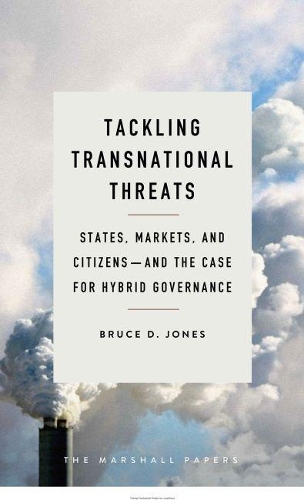
Tackling Transnational Threats: States, Markets, and Citizensand the Case for Hybrid Governance
(Paperback)
Publishing Details
Tackling Transnational Threats: States, Markets, and Citizensand the Case for Hybrid Governance
By (Author) Bruce D. Jones
Bloomsbury Publishing PLC
Brookings Institution
13th July 2017
United States
Classifications
Professional and Scholarly
Non Fiction
Warfare and defence
Geopolitics
Terrorism, armed struggle
Physical Properties
Paperback
160
Description
Critical global issues, such as climate change and terrorism, require innovative solutions. Can civil society and political leadership be linked across nations to address these scourges
The second decade of the twenty-first century has dawned with new threats that are testing not only the international architecture that has preserved the peace since the end of the World War II but also the sovereignty of the nation-state. Climate change and terrorism are global in reach and, in the case of climate change, poses an existential threat to mankind. While global institutions and global cooperation have been a primary source of finding solutions to climate change and combatting terrorism, they have proved inadequate. At the same time, individual nation states have confronted rising tensions within in response to the forces of globalization and international cooperation, leading to the potential for unilateral actions with global consequences.
In this new Marshall Paper, Brookings scholar Bruce Jones surveys this new landscape and the threats that confront it and offers a solution that harnesses the power of centralized states and their citizenry to form a hybrid governance system to tackle the transnational issues confronting the globe today.
Author Bio
Bruce D. Jones is a vice president and director of the Foreign Policy program at Brookings and a senior fellow in the Project on International Order and Strategy at Brookings.
